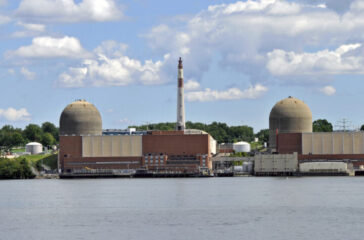Battles brew over radioactive wastewater discharge from shuttered nuclear plants
By Dana Drugmand
An effort by New York to ban radioactive waste from polluting the Hudson River has embroiled the state in a bitter legal battle emblematic of challenges facing communities across the country as they wrestle with what to do with the waste from shuttered nuclear power plants.
 EWG
EWG